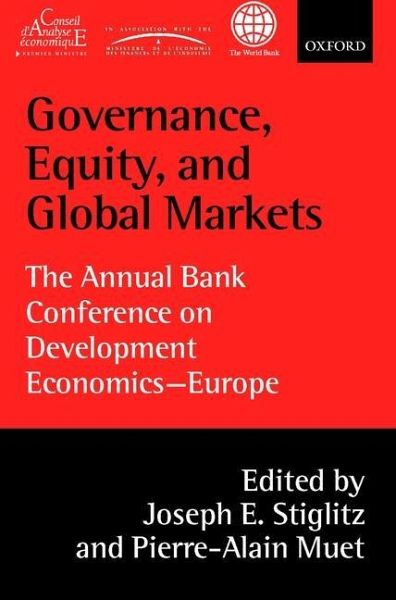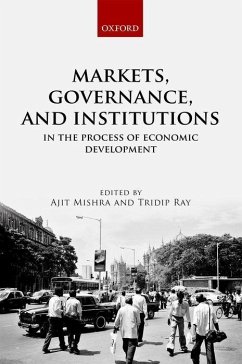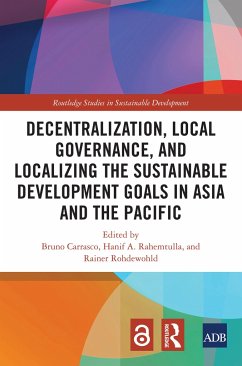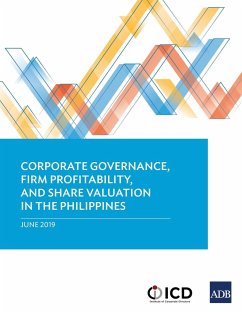
Governance, Equity, and Global Markets
The Annual Bank Conference on Development Economics - Europe
Herausgeber: Stiglitz, Joseph E.; Muet, Pierre-Alain
Versandkostenfrei!
Versandfertig in 1-2 Wochen
42,99 €
inkl. MwSt.

PAYBACK Punkte
21 °P sammeln!
The World Bank's Annual Bank Conference on Development Economics (ABCDE) is one of the world's best known series of conferences for the presentation and discussion of new knowledge about development. The conference has become increasingly ambitious in scope as the world's economies have become more interconnected, challenges have become more complex, and the distinction between development economics and other disciplines has become less clear. This volume collects together papers from the 1999 ABCDE in Europe given by some of the most prominent thinkers on development issues. These papers reflect the fact that economic trends are demanding a more intense and dynamic flow of ideas and expertise between the developed and developing worlds, between Europe and America, between north and south. While there is growing consensus among economic policymakers on the need for macroeconomic stability, there is less agreement on how to balance this need with pressing social needs.














